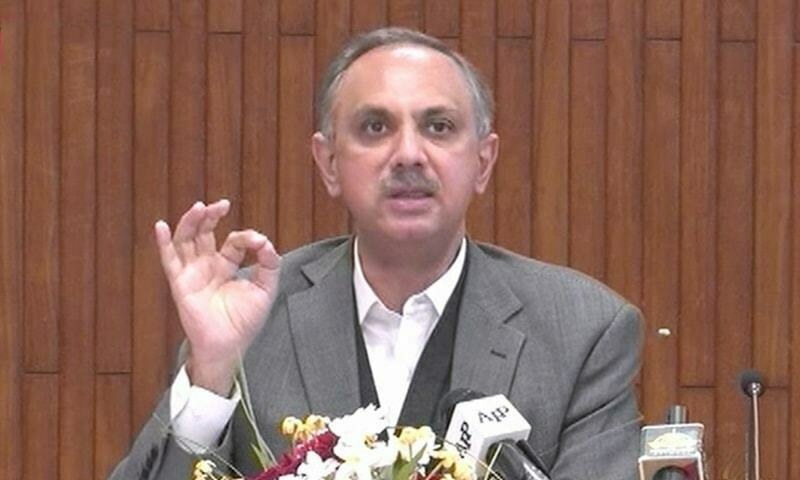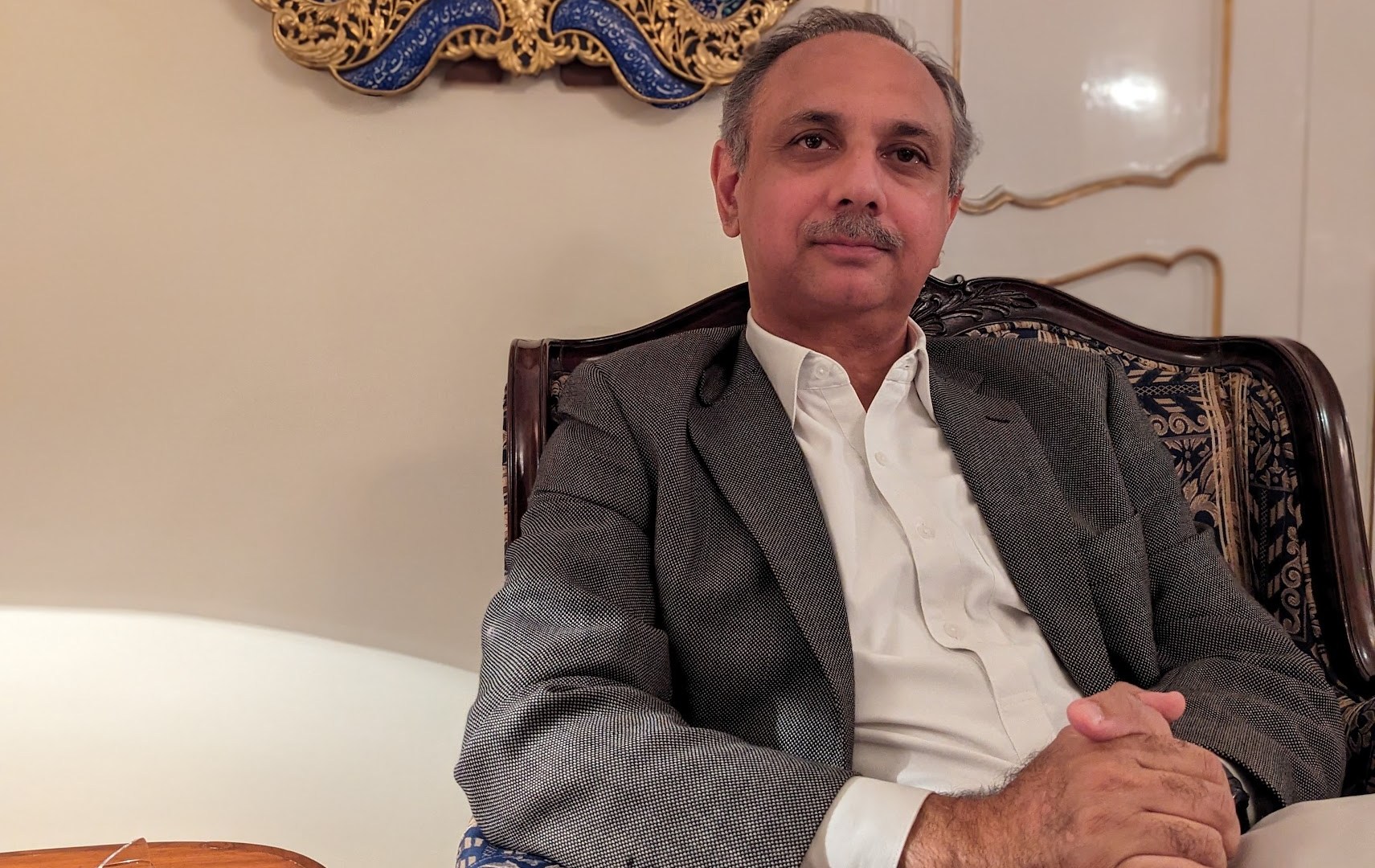Shortly after Pakistan’s newly-elected Prime Minister Shehbaz Sharif concluded his victory speech amid a tumultuous atmosphere in parliament, Omar Ayub Khan rose to address the house from the opposition benches.
Posters of Imran Khan, the chairman of Omar’s Pakistan Tehreek-e-Insaf (PTI) party and a former Pakistani prime minister, were prominently displayed on his desk and those of his colleagues.
Donning a red-and-green scarf, representing the colors of his PTI, 54-year-old Omar referenced a line from Shakespeare’s Hamlet: “There is something rotten in the system of Pakistan today.”
According to Imran Khan, the source of the rot is the interference of Pakistan’s military establishment in politics, an accusation the army denies.
Omar, typically known for his enthusiasm for adventure sports such as aviation and skydiving, took a more measured approach, directing his criticism towards the political parties forming the government: Sharif’s Pakistan Muslim League-Nawaz (PMLN), the Pakistan People’s Party (PPP), and other smaller parties.

Omar Ayub Khan (Credits: DAWN)
“Their discontent is evident. They acknowledge the injustice that has occurred,” he asserted in parliament, gesturing towards the government benches. “They understand the dysfunctionality of this system. Our mandate has been stolen.”
However, his speech solidified his position as the parliamentary voice of a party challenging the military’s role in Pakistani politics.
This legacy holds particular significance for Omar, given his familial background.
His grandfather, General Ayub Khan, played a pivotal role in undermining Pakistan’s democracy by assuming the position of martial law administrator in 1958 and governing for the subsequent 11 years. Ayub’s tenure set a precedent for military rule in Pakistan, with military rulers governing the country for over 30 of its 77 years of independence.
Now, Omar, as Ayub’s grandson, is advocating for a different path for Pakistan, riding on the wave of PTI’s popularity, which defied expectations in the February 8 elections by securing the most seats despite facing obstacles such as the inability to use their party symbol.
Yet, the PTI wasn’t Omar Ayub Khan’s initial political affiliation. He gained attention as a party-hopper, contesting elections in 2008, 2013, and 2018 under three different banners.
However, his political trajectory began to change nearly two years ago when Imran Khan was ousted from power through a no-confidence motion, which the PTI alleged was orchestrated by the military.
To protest this ousting and demand new elections, Imran Khan organized a long march in May 2022, appointing Omar to oversee the logistics. However, the march faced severe government repression, resulting in Omar being among those brutally assaulted.
His injuries garnered widespread attention, elevating his status as a prominent PTI leader.
Despite coming from a family entrenched in Pakistan’s elite circles, Omar’s allegiance shifted towards PTI due to a combination of factors, including his admiration for Imran Khan’s leadership and the party’s growing popularity.
Having served in various political capacities, including a stint in Musharraf’s government, Omar brings a wealth of experience to his current role in the opposition. Critics, however, question his motivations, citing his history of switching parties.
Nevertheless, Omar remains steadfast in his loyalty to PTI, emphasizing his commitment to democratic principles and his party’s mission to reclaim its mandate through parliamentary means.
As PTI navigates through challenges, including Imran Khan’s incarceration and electoral setbacks, Omar emerges as a symbol of resilience and steadfastness. His unwavering support for the party underscores his dedication to its cause and his determination to chart a new course for Pakistan.























